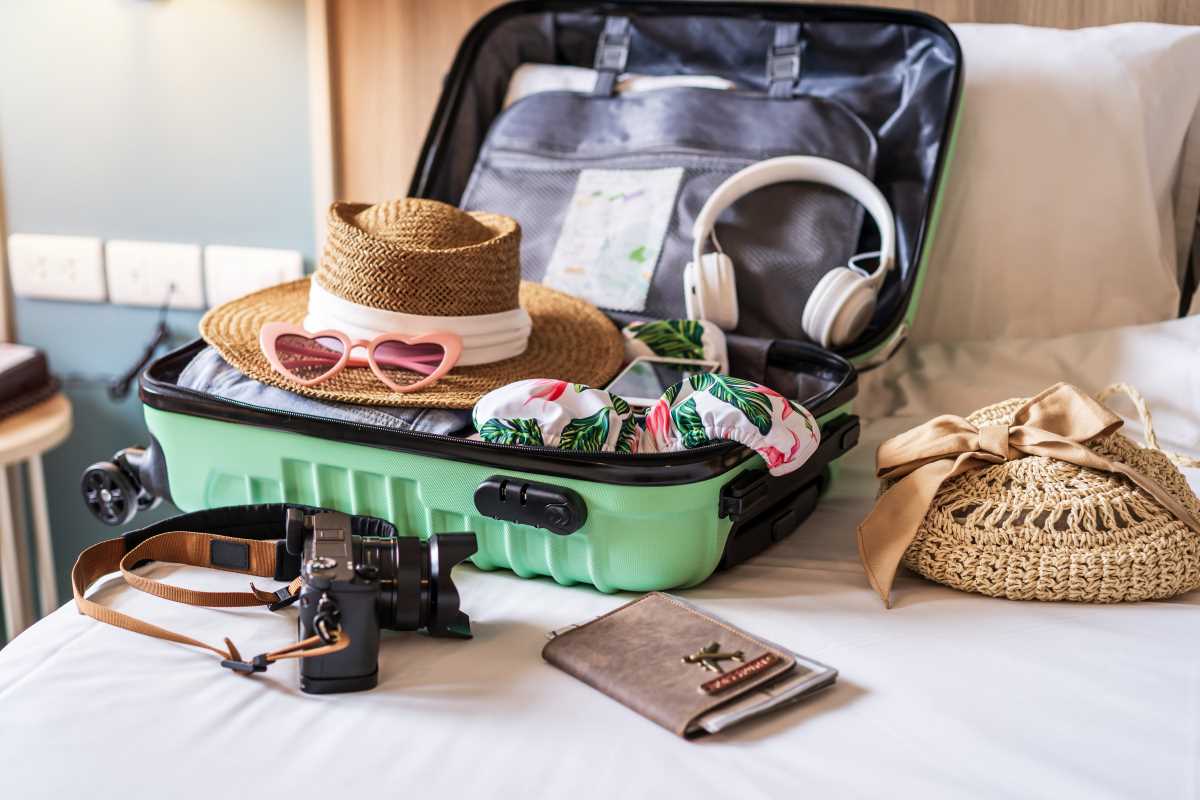When you're gearing up for a hiking adventure, it’s tempting to pack everything you might “possibly” need, but trust us — less is more. Hiking requires a careful balance between packing for comfort and avoiding unnecessary weight. Every ounce you add to your backpack can feel like a ton after hours of trekking.
Start by choosing lightweight gear and opting for multipurpose items. A good rule of thumb is to ask yourself, “Will I actually use this, and can I survive without it?” Consider the weather and terrain: if you're hiking in a cold, mountainous area, you’ll need a lightweight, compact sleeping bag rated for the temperature, a waterproof jacket, and sturdy boots. On the other hand, if you're heading to a dry, warm climate, you'll want breathable fabrics and sunscreen instead.
Also, consider your gear’s dual function—an inflatable pillow that doubles as a dry bag or a rain jacket that turns into a poncho could save you some serious weight without sacrificing comfort or safety.
Stay Organized with Packing Cubes
Nothing kills your hiking vibe more than rummaging around in a chaotic backpack to find a pair of socks or your energy bar. That’s why packing cubes are your best friend on the trail. These handy little organizers not only keep your bag neat and tidy, but they also maximize space, making sure you can fit everything you need without overstuffing your pack.
Use one cube for clothes, one for electronics and chargers, and another for food and snacks. Not only does this make it easier to find what you need on the go, but it also keeps your gear dry and prevents your clean clothes from mingling with your sweaty ones. So, get yourself some packing cubes and make your hiking journey a whole lot smoother — no more “Where did I put that thing?” moments.
Pack Nutrient-Dense Snacks
Hiking is a physically demanding activity, and your body will need plenty of fuel to keep moving forward. But the last thing you want to do is haul a bunch of bulky snacks that take up precious space in your pack. Instead, opt for lightweight, nutrient-dense foods that will keep your energy levels high without weighing you down.
Here are some snack ideas that are perfect for hitting the trail:
- Nuts: Packed with protein and healthy fats, nuts like almonds, cashews, and walnuts are a quick energy booster.
- Dried Fruit: Go for dried berries, apricots, or apples. They’re sweet, easy to carry, and provide a good dose of vitamins.
- Energy Bars: Choose high-calorie, low-weight bars that are easy to eat on the go. Look for ones that are packed with protein and fiber.
- Trail Mix: The classic hiking snack, trail mix is a customizable blend of nuts, seeds, dried fruit, and a little chocolate for an energy boost.
Avoid anything too heavy or messy — your backpack doesn't need to be filled with canned tuna or the temptation of a full-size sandwich. Keep it light and easy to snack on during your hike to stay fueled without extra baggage.
Invest in Quality Outdoor Gear
You might be tempted to go for the cheapest options when it comes to outdoor gear, but in the world of hiking, you really do get what you pay for. Investing in high-quality, durable gear is worth every penny and can make your hike more comfortable and enjoyable. Cheap gear might look good on paper, but when it starts falling apart halfway through your trek, you’ll wish you’d spent a little more.
For example, a sturdy pair of hiking boots with proper arch support is an absolute must. Blisters and sore feet can ruin any hike, so make sure your boots are comfortable and built to handle the terrain. Similarly, moisture-wicking clothing will help you stay dry, even if you're sweating it out on a tough uphill climb.
A high-quality backpack is also essential—choose one with padded straps, plenty of compartments, and waterproof material to protect your belongings. Don’t skimp on gear like a sleeping bag, tent, or sleeping pad either. After all, these items are what will keep you safe and comfortable on the trail and during your rest stops.
Bring a Water Filtration System
One of the biggest challenges of hiking is staying hydrated, especially if you're venturing into remote areas where water sources might not be reliable. Instead of lugging around heavy water bottles, a portable water filtration system is the way to go.
Water filters, purification tablets, or even UV light purifiers can easily fit into your pack and allow you to drink water safely from streams, lakes, or rivers along the way. Make sure your filter has a fast flow rate so you don’t spend all day filtering water, and keep extra purification tablets just in case. A hydration reservoir with a built-in straw is also a great idea, as it allows you to drink while on the move, saving precious time.
Having a reliable way to access fresh water without carrying it all from home will keep your pack light and your hydration levels high — essential for those long hiking days.
Pack Emergency Essentials
While preparation is key for any hiking adventure, it’s also important to be ready for the unexpected. Emergencies can happen, and the difference between a stressful situation and a safe return often boils down to the essentials you’ve packed.
A first aid kit is non-negotiable — pack the basics such as band-aids, antiseptic wipes, blister treatment, and pain relievers. A whistle is another great item that can help you signal for help if you get lost. A multi-tool (or Swiss Army knife) will come in handy for repairs, food prep, or any other random task that may arise. And a headlamp is essential for navigating when daylight runs out faster than expected.
Don’t forget a map and compass, even if you’re using a GPS device. Electronics can fail, and it's always a good idea to have a backup navigation method. And of course, pack extra food and water, as it’s always better to be over-prepared than under-prepared.







